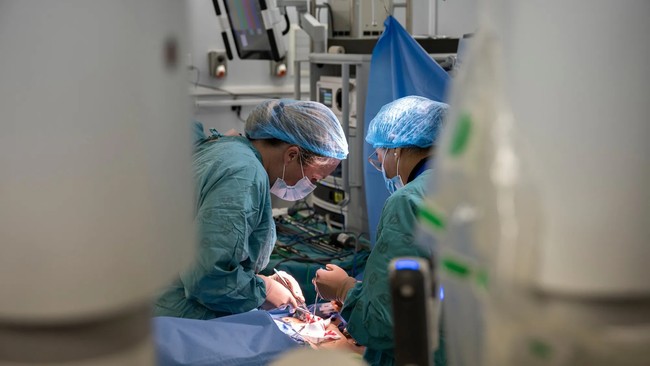Prime Minister Edouard Ngirente has called for a stronger surgical system across Africa, emphasizing the urgent need to address the widespread lack of access to safe and affordable surgical care on the continent.
Speaking at the opening of the inaugural Pan-African Surgical Conference on February 24, Ngirente stressed that surgery is a fundamental part of healthcare, not a privilege. The conference, held in Kigali, brought together surgeons, policymakers, and global health experts to discuss solutions for closing gaps in Africa’s surgical ecosystem.
“We are here to discuss the challenges in surgical care, work for development, and innovate to transform healthcare across the continent,” Ngirente told delegates at the five-day conference.
“Surgery is not a luxury; it is a pillar of healthcare,” he said. “Yet 70% of the world’s population lacks access to safe, timely, and affordable surgical care.” He underscored the critical role of surgery in achieving universal health coverage and pointed to Africa’s severe shortage of healthcare professionals.
“Africa, home to 12% of the global disease burden, has only 2% of the world’s healthcare workforce,” Ngirente said. “This imbalance costs us lives every day. The Government of Rwanda has long recognized the importance of surgical care in universal health coverage, and we aim to ensure that the next generation of surgeons is trained in settings that are geographically accessible to those who need them most.”
Ngirente also highlighted the role of technological innovation, including telemedicine and minimally invasive surgery, in improving healthcare accessibility. He urged focused action to ensure more widespread access to surgical services and adequate training for future surgeons.
“Let us commit to ensuring that our communities have access to affordable surgical services at their nearest healthcare facility,” he said.
Prof. Faustin Ntirenganya, president of the Rwanda Surgical Society, acknowledged the significant gaps in the country’s surgical capacity. He pointed to a severe shortage of surgeons and medical infrastructure, which places immense strain on both medical professionals and patients.
“With only 162 surgeons serving a population of 14 million, Rwanda is far from meeting global standards,” Ntirenganya said. “The reality is that people may wait years for surgeries due to the shortage.”
Despite these challenges, Ntirenganya highlighted opportunities in Rwanda, including government support and ongoing healthcare investment. He pointed to advancements such as drones for blood delivery and expanding surgical training programs.
“The key challenge is the gap in numbers, but the opportunities are immense, especially with political will and partnerships in place,” he said. “We still need a holistic approach to improve surgical care, and Rwanda is committed to building a resilient and sustainable surgical system to ensure quality care for all.”
Kathy Magee, president and CEO of Operation Smile, one of the conference organizers, echoed the call for equitable access to healthcare, regardless of location or financial status. She noted that Africa will require six million more surgical providers by 2030 to meet demand.
“What keeps me up at night is just one more child, just one more child,” Magee said, summarizing the conference’s mission of ensuring surgical access for all children. She emphasized the role of education in training the next generation of healthcare professionals.
Magee also advocated for building district hospitals closer to communities to reduce the financial burden on families and improve access to life-saving surgical care.

